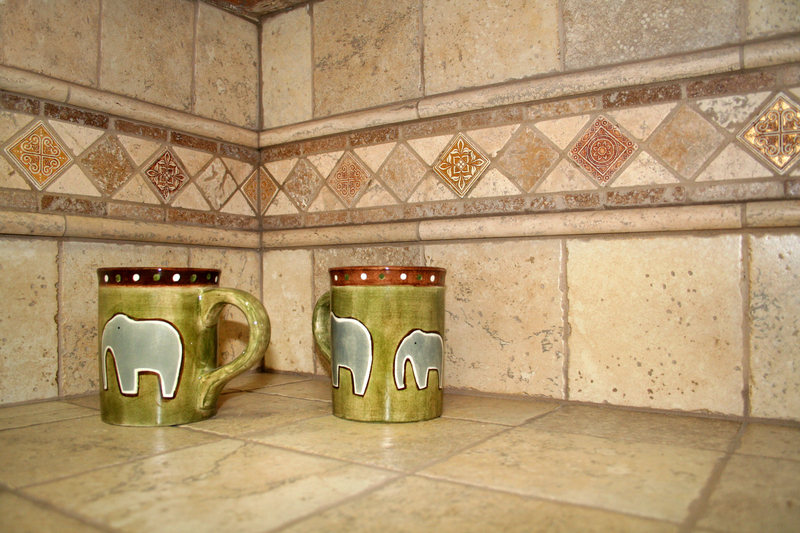Reclaim Your Fresh-Smelling Home from Pet Odors
Posted on 12/09/2025
Reclaim Your Fresh-Smelling Home from Pet Odors
Are you struggling with stubborn pet odors taking over your living space? Learn how to effectively reclaim your home's freshness using proven methods and handy tips designed for pet owners just like you.
Understanding Pet Odor and Its Impact on Your Home
Pets bring joy, companionship, and endless love, but they can also bring unwelcome smells. Whether it's lingering pet odor from a beloved dog, a mysterious cat urine scent, or general animal smells, these odors can cause embarrassment and discomfort. The good news? Freshening your home and eliminating pet odors is achievable with the right techniques and consistency.
In this detailed guide, we'll explain:
- Why pet odors persist
- How pet odors affect your indoor air quality and health
- Step-by-step strategies to remove pet odors from every part of your home
- Recommended products and DIY solutions
- How to prevent future odors for a consistently fresh-smelling home

Why Do Pet Odors Linger in Your Home?
Identifying the source and nature of pet odors is the first step towards eliminating pet smells. Here are the main reasons why pet odors are so persistent:
- Protein-Based Stains: Pet urine, saliva, and dander contain proteins and bacteria that cause strong odors, especially when left untreated or if deep within fabrics.
- Absorbent Surfaces: Carpets, upholstery, and bedding can absorb and trap animal odors for weeks or months.
- Repeated Soiling: Pets may mark the same areas repeatedly, making the smell stronger and more difficult to remove.
- Poor Air Circulation: Inadequate ventilation allows foul smells to accumulate faster.
- Lack of Deep Cleaning: Surface cleaning may mask smells briefly, but thorough cleaning is essential for permanent odor removal.
Pet odor removal isn't just about masking the smell – you must target the source to reclaim your home's freshness.
The Effects of Persistent Pet Odors on Your Home and Well-Being
- Reduced Comfort: Strong pet odors can make it difficult to enjoy your living space, especially in closed environments.
- Health Implications: Chronic pet odors may contribute to allergies, respiratory problems, and headaches for sensitive individuals.
- Negative Impressions: Pet smells can leave a poor impression on guests or potential home buyers.
- Encourages Re-soiling: If not properly cleaned, residual odors may draw your pets back to mark or soil the area again.
Eliminating pet odors will improve your quality of life and create a welcoming, comfortable atmosphere for you and your visitors.
Step-by-Step Strategies to Reclaim Your Home from Pet Odors
1. Pinpoint the Source of Pet Odors
- Inspect common problem areas: carpets, rugs, furniture, pet beds, and corners.
- Use a blacklight at night to reveal invisible urine stains (uric acid glows under UV light).
- Mark problem spots for targeted cleaning.
2. Take Immediate Action on Fresh Accidents
- Blot (do not rub) as much of the mess as possible with paper towels or clean cloths.
- Apply a pet-safe enzymatic cleaner to break down urine proteins and neutralize odors. These are specially formulated for pet odor removal.
- Avoid bleach or ammonia-based cleaners – these may encourage repeat marking and can be harmful to pets.
3. Deep Clean Soft Surfaces
- Carpets: Use a carpet cleaner with a dedicated pet odor eliminator. For stubborn smells, sprinkle baking soda, let sit for 30 minutes, then vacuum thoroughly.
- Upholstery and Bedding: Wash covers, blankets, and pillows in hot water with an odor-fighting laundry detergent. For larger items, use upholstery cleaning sprays labelled for pet smells.
- Pet Beds and Toys: Wash regularly, and consider replacing old items that repeatedly trap odors.
4. Address Hard Surfaces
- Floors: Mop with a mixture of white vinegar and water or use a specific pet odor neutralizer.
- Walls and Baseboards: Wipe down with a mild detergent solution, focusing on low areas that dogs or cats may rub against.
5. Boost Indoor Air Quality
- Open Windows: Increase ventilation as often as possible to allow fresh air to circulate.
- HEPA Air Purifiers: Invest in air purifiers with HEPA filters to trap pet dander, hair, and airborne odor-causing particles.
- Deodorizers and Odor Absorbers: Use activated charcoal bags, baking soda containers, or natural odor absorbers to maintain freshness.
6. Maintain a Clean Pet
- Bathe pets regularly using gentle, pet-formulated shampoos. Be cautious not to overwash, which can irritate their skin.
- Brush fur to reduce loose hair and dander, which contribute to lingering smells.
- Keep pet claws trimmed to minimize damage and accidental soiling of soft surfaces.
7. Don't Forget the Litter Box
- Scoop waste daily and change litter frequently. Clean the box itself with hot, soapy water every 1-2 weeks.
- Try unscented, clumping, or odor-absorbing litter for better cat odor control.
- Use baking soda as a safe additive to absorb and neutralize odors.
8. Handle Persistent Odors with Advanced Solutions
- Steam Cleaning: Use a home steam cleaner on carpets and upholstery for a deep, sanitary clean.
- Ozone Generators: For severe situations, ozone generators can bond to odor molecules, neutralizing them. Use with caution – follow all safety guidelines and keep pets away during ozone treatment.
- Professional Cleaning: Some stubborn pet odors may require expert carpet and upholstery cleaning.
DIY Solutions to Eliminate Pet Smells Naturally
Looking for natural, budget-friendly pet odor remedies? Try these effective options:
- Baking Soda: Place open boxes or bowls around odorous areas to absorb pet smells. Sprinkle directly on soft surfaces before vacuuming.
- Vinegar Solution: Mix equal parts white vinegar and water in a spray bottle. Spray on hard surfaces or lightly mist on fabrics (spot test first!) then wipe clean.
- Lemon: Lemon juice is a natural deodorizer. Add a few tablespoons to cleaning water for a fresh scent.
- Hydrogen Peroxide: Safe for many surfaces (spot test), hydrogen peroxide can help remove lingering dog and cat smells from fabrics and grout.
- Essential Oils: Use pet-safe essential oils (like lavender or cedarwood) for a subtle, non-toxic air freshener.
*Never use essential oils directly on pets unless specifically recommended safe by a veterinarian.
How to Prevent Future Pet Odors and Maintain a Fresh Home
Consistent cleanliness is key to a fresh-smelling, pet-friendly home. Here's how to minimize the risk of new odors:
- Establish Cleaning Routines: Vacuum carpets, rugs, and upholstered surfaces at least twice a week. Wash pet bedding and blankets weekly.
- Groom Pets Regularly: Keep fur, dander, and skin oils under control with frequent brushing and grooming.
- Use Stain-Resistant Fabrics: For high-traffic pet areas, choose furniture and rugs designed for easy cleaning and odor resistance.
- Monitor Pet Behavior: Address marking or accidents immediately. Rule out medical issues with your veterinarian if accidents are frequent.
- Change Air Filters Regularly: Replace HVAC and air purifier filters as recommended to keep airborne odors at bay.
- Try Home Fragrance Hacks: Simmer a pot of citrus peels and herbs, or use gentle diffusers (avoiding any substances toxic to pets).
The Best Products for Pet Odor Removal
Not all cleaning products deliver the same results when it comes to rejuvenating your space. Here are the most effective pet odor removal products to keep in your cleaning arsenal:
- Enzymatic Cleaners: The gold standard for pet urine and fecal odors. Break down organic matter for thorough odor neutralization.
- Baking Soda-Based Deodorizers: Used on carpets, furniture, and in litter boxes for ongoing freshness.
- HEPA Air Purifiers: Capture dander, dust, and bacteria, dramatically improving indoor air quality.
- Portable Carpet Cleaners: For spot-treating new accidents before they set in.
- Odor-Absorbing Gels or Charcoal Bags: Excellent for musty closets, pet corners, and under furniture.

Frequently Asked Questions: Pet Odors in the Home
How can I tell if my house smells like pets?
Most homeowners become "nose blind" to their own household smells. Invite a trusted friend over, or leave your house for a few hours and assess the odor upon return. Blacklight inspections can reveal hidden sources of pet odors as well.
Are air fresheners enough to cover up pet odors?
No. While air fresheners temporarily mask smells, they don't address the source. For lasting pet odor control, target and eliminate the underlying cause using proven cleaning and odor removal methods.
Is it possible to completely remove cat urine smell?
With immediate action, enzymatic cleaners, and deep cleaning strategies, even severe cat urine odors can be dramatically reduced or eliminated. In rare cases, you may need to replace carpet padding or subfloors that are heavily soiled.
Are pet-safe cleaning products necessary?
Yes. Always choose non-toxic, pet-formulated cleaners to avoid harming your animals. Avoid harsh chemicals like ammonia, chlorine bleach, or products containing phenols.
Conclusion: Enjoy a Fresh-Smelling, Pet-Friendly Home Year-Round
A fresh, inviting home is possible – even with pets in the house! By understanding why pet odors linger and using the practical steps in this guide, you can reclaim your home from stubborn pet smells for good. Routine cleaning, smart product choices, and prevention will ensure your living space is always cozy and guest-ready.
Love your pets – and your fresh home, too! Start implementing these powerful pet odor removal tips today and enjoy a more comfortable, healthy environment for everyone.





